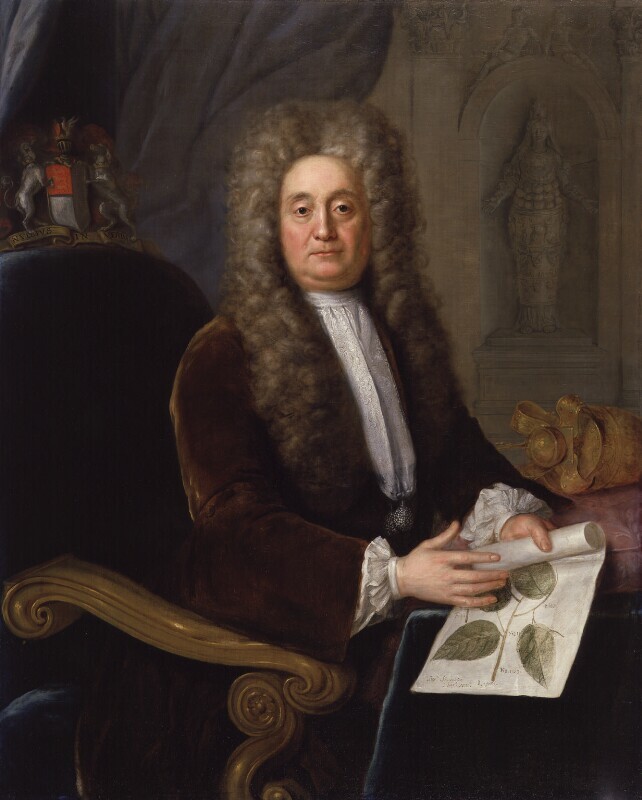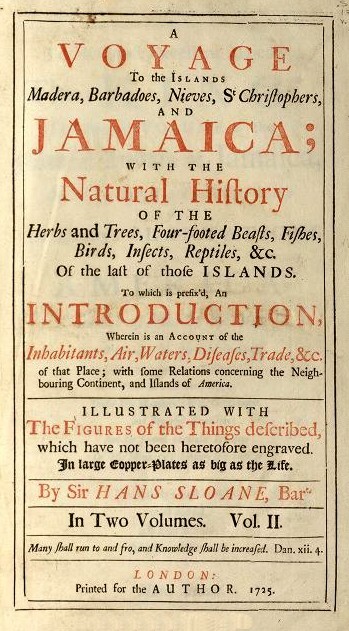Friends in Smart Places
Hans Sloane was destined for a career in the biological sciences. From a young age, Sloane showed acute interest in the natural sciences and was able to further this interest with various trips to Paris where he attended lectures on botany, anatomy, and chemistry. Sloane settled at the University of Orange where he was awarded his degree as a medical doctor.[1] Upon completion of Sloane’s intellectual tour of Europe, he returned back to London in 1685 where he was made a fellow of the Royal Society and the Royal College of Physicians. A young, but studied Hans Sloane had an insatiable appetite for the cultivation of new knowledge. n 1687 Sloane was granted the position of personal physician to Christopher Monck, 2nd Duke of Albemarle, who had been appointed as the Governor of Jamaica. At the age of twenty-seven, Hans Sloane set out for Jamaica, which had only been recently acquired from Spain in 1670. Sloane’s voyage would only last fifteen months, as the new governor fell ill and died the same year. In this time, Sloane collected over 800 specimens and took note of various customs of the local indigenous populations as well as other natural phenomena like earthquakes. [2]Nearly twenty years after Sloane’s initial visit to Jamaica, he produced the first volume of his work titled A Voyage to the Islands of Madera, Barbados, Nieves, St. Christophers, and Jamaica. Sloane introduces a fresh, systematic approach to natural history that is imbued by his own unique narrative and concise description of the natural fauna of Jamaica.
In this researchers opinion, what solidifies Sloane’s reputation as a great scientist was the network of correspondents that he facilitated as the secretary of the Royal Society. It was Sloane’s duty to compile entires for the Philosophical Transactions of the Royal Society, a scientific journal maintained by the Royal Society that published the current work and curious interests of contemporary scientists. Sloane’s tenure as secretary and eventual presidency of the society saw the dramatic overhaul of Philosophical Transactions as an entity independent of the business of the Royal Society. Hans Sloane’s wide correspondence and personal success boosted the reputation of the society, as new publications were making their way into the hands of the society members who were able to legtimize and record new scientific knowledge.
[1] MacGregor, Arthur. "Sloane, Sir Hans, baronet (1660–1753), physician and collector." Oxford Dictionary of National Biography. 23 Sep. 2004; Accessed 17 Jul. 2020. https://www-oxforddnb-com.mutex.gmu.edu/view/10.1093/ref:odnb/9780198614128.001.0001/odnb-9780198614128-e-25730.
[2] Ibid,.

